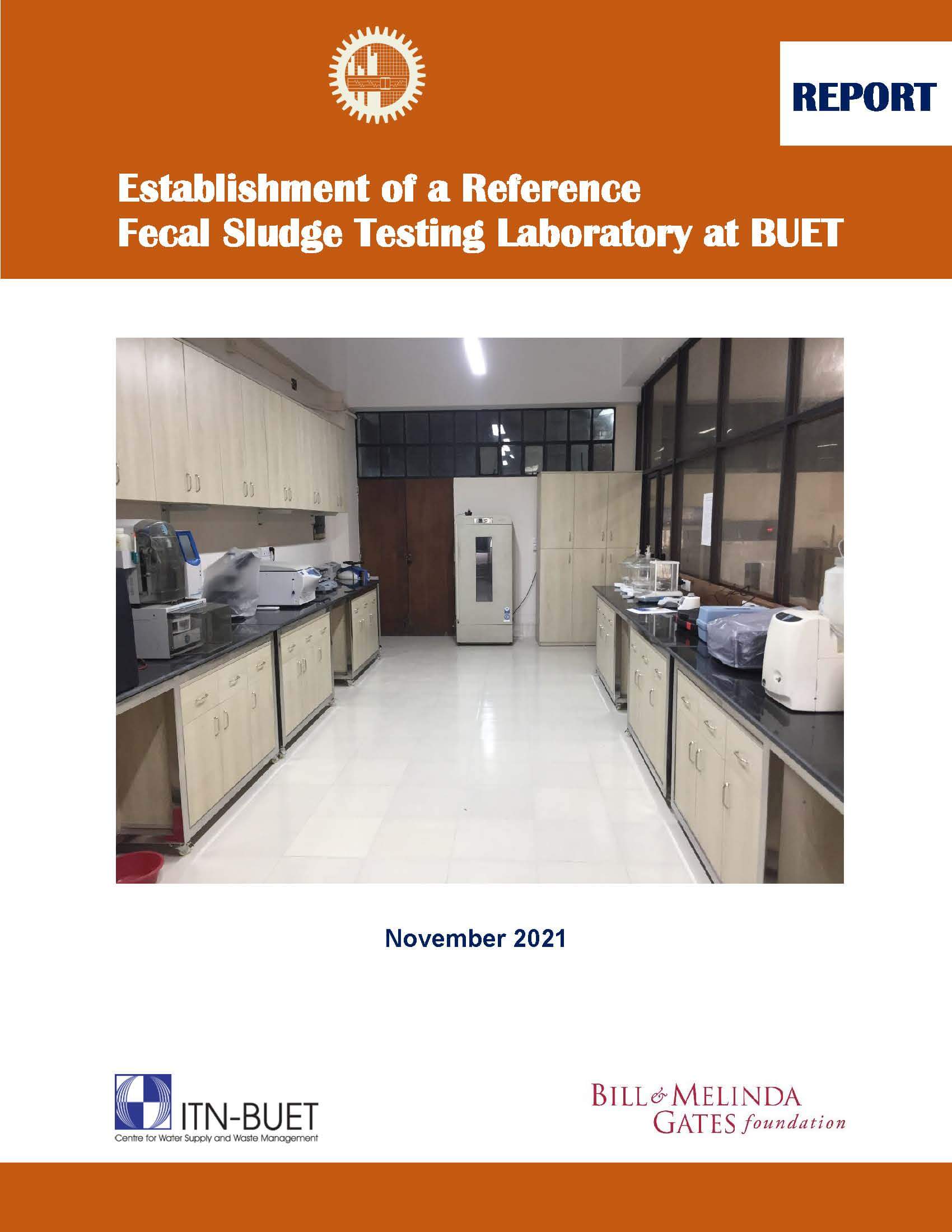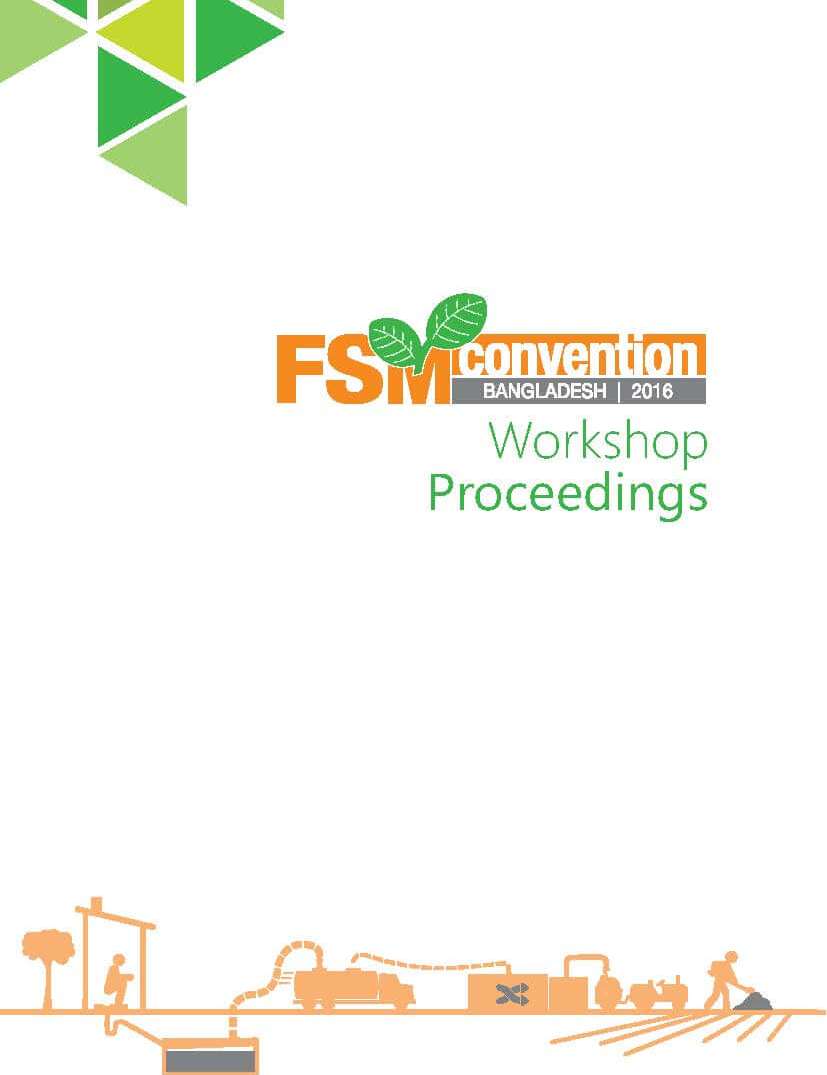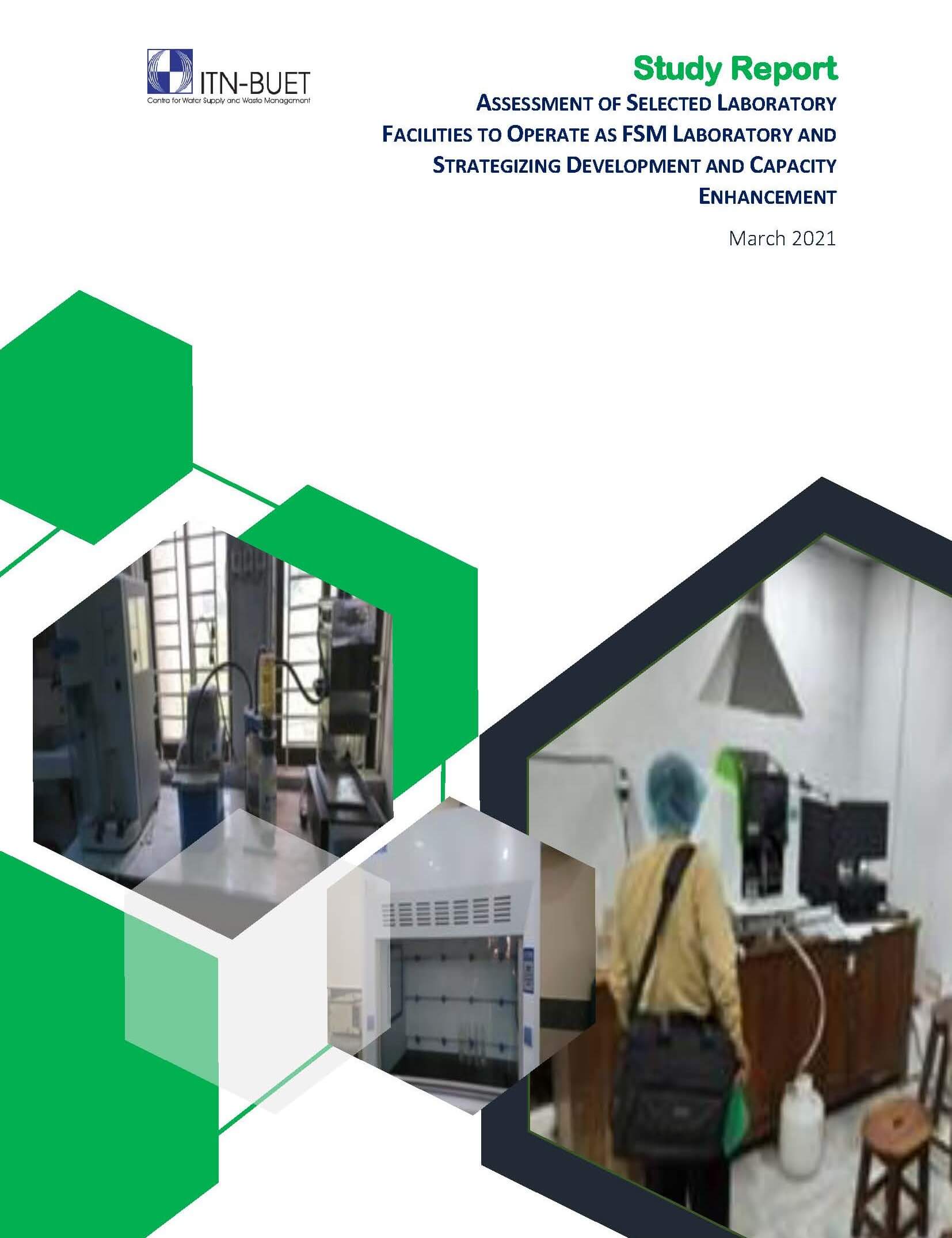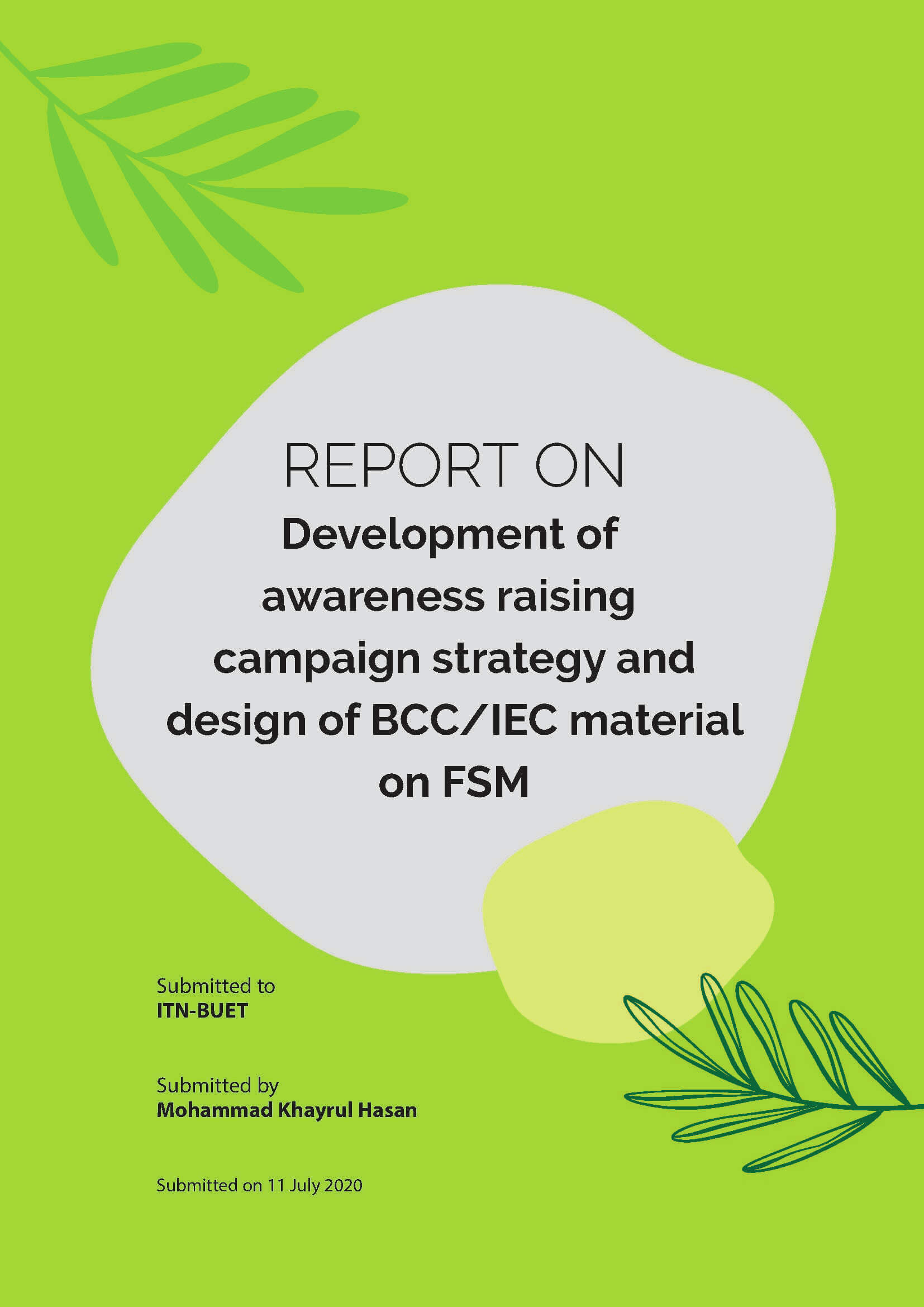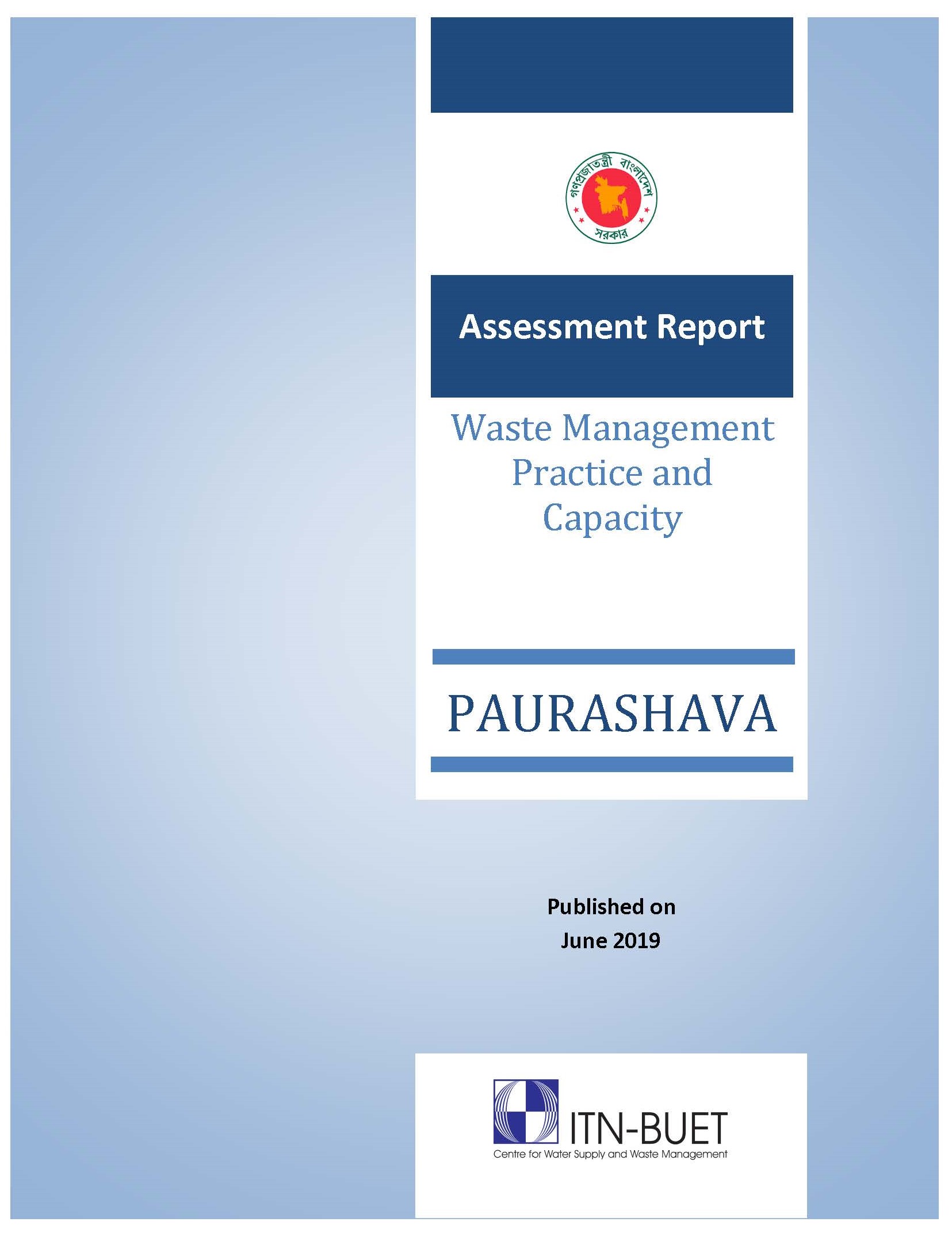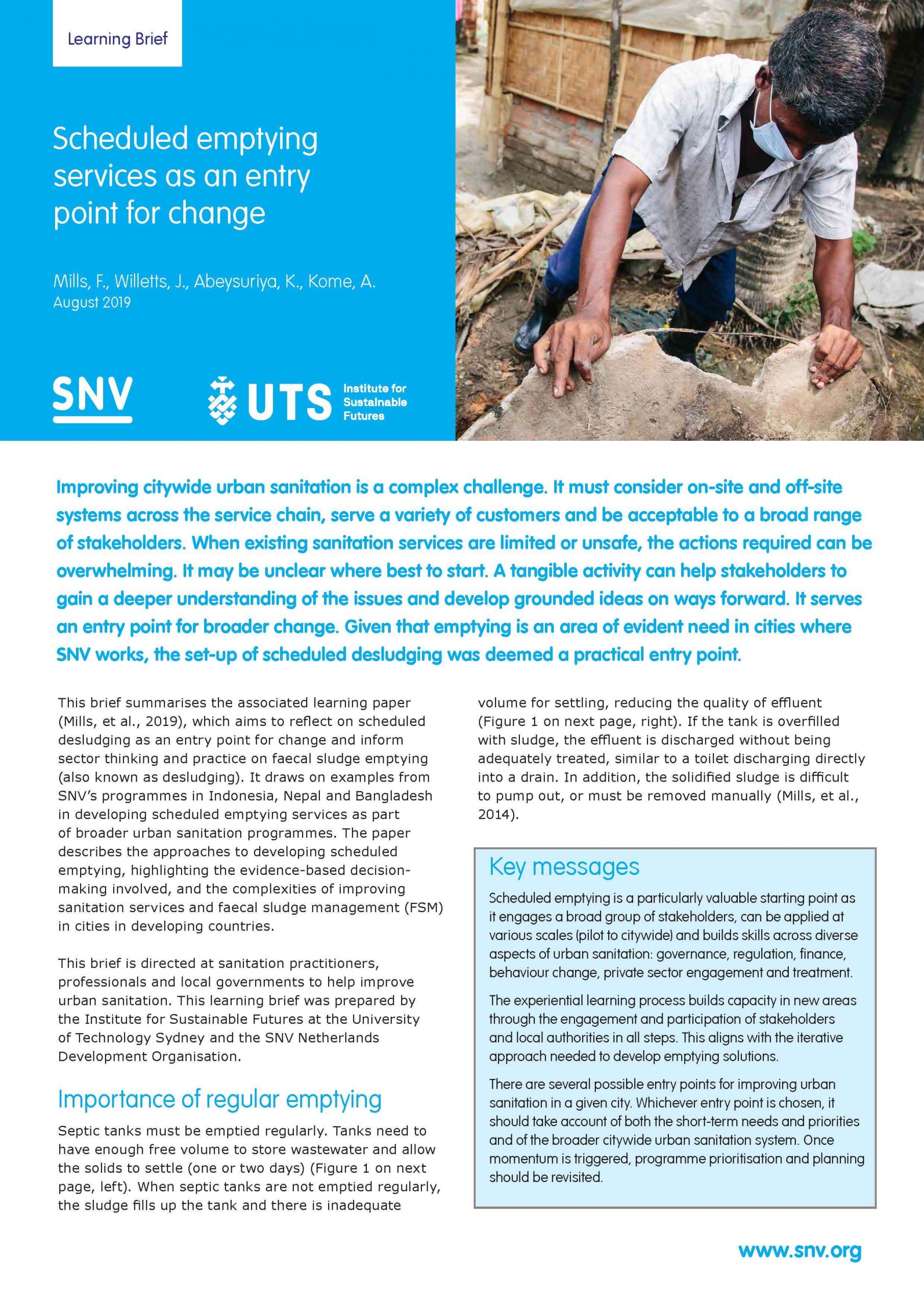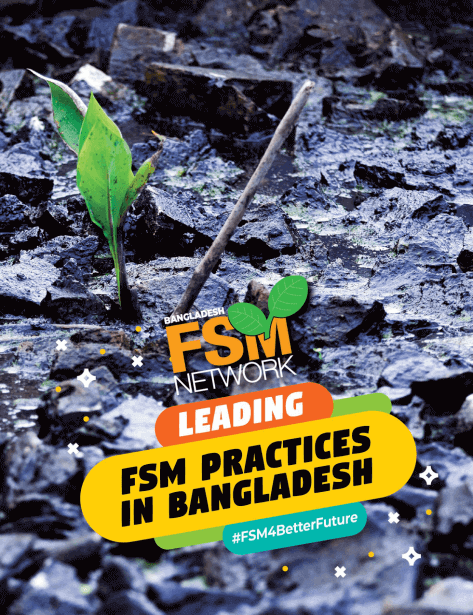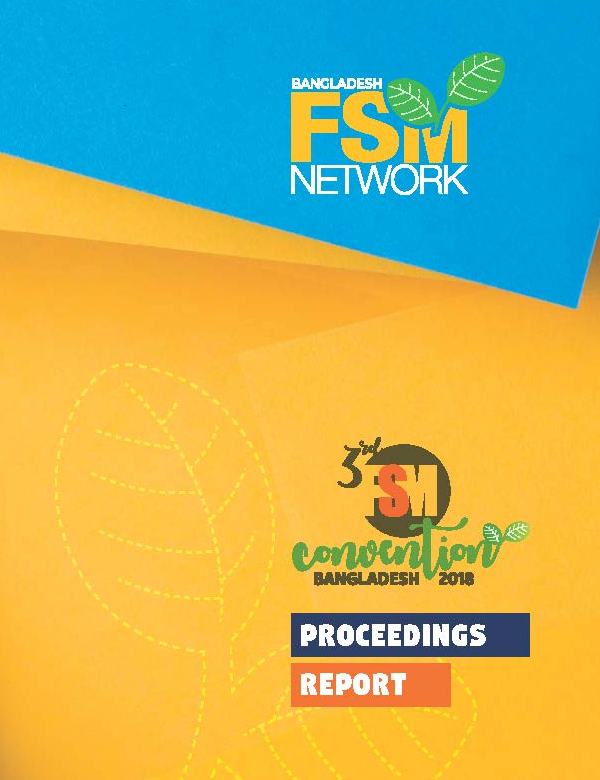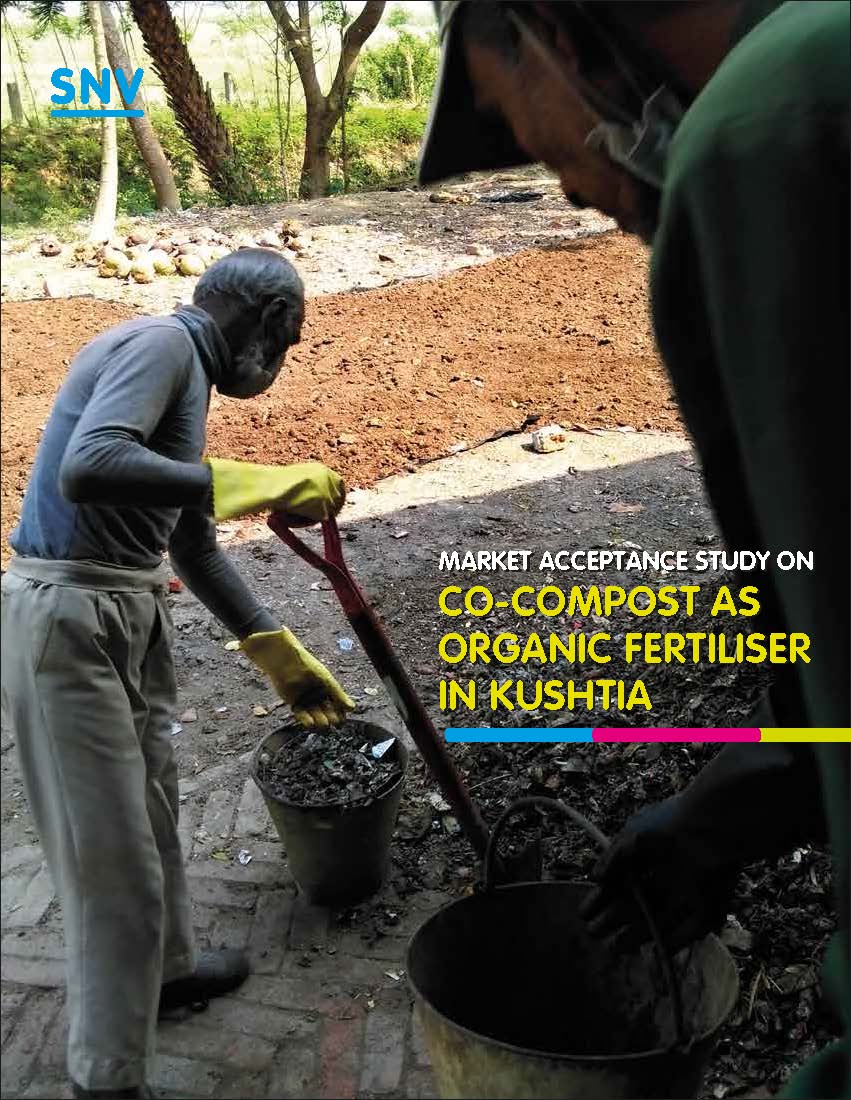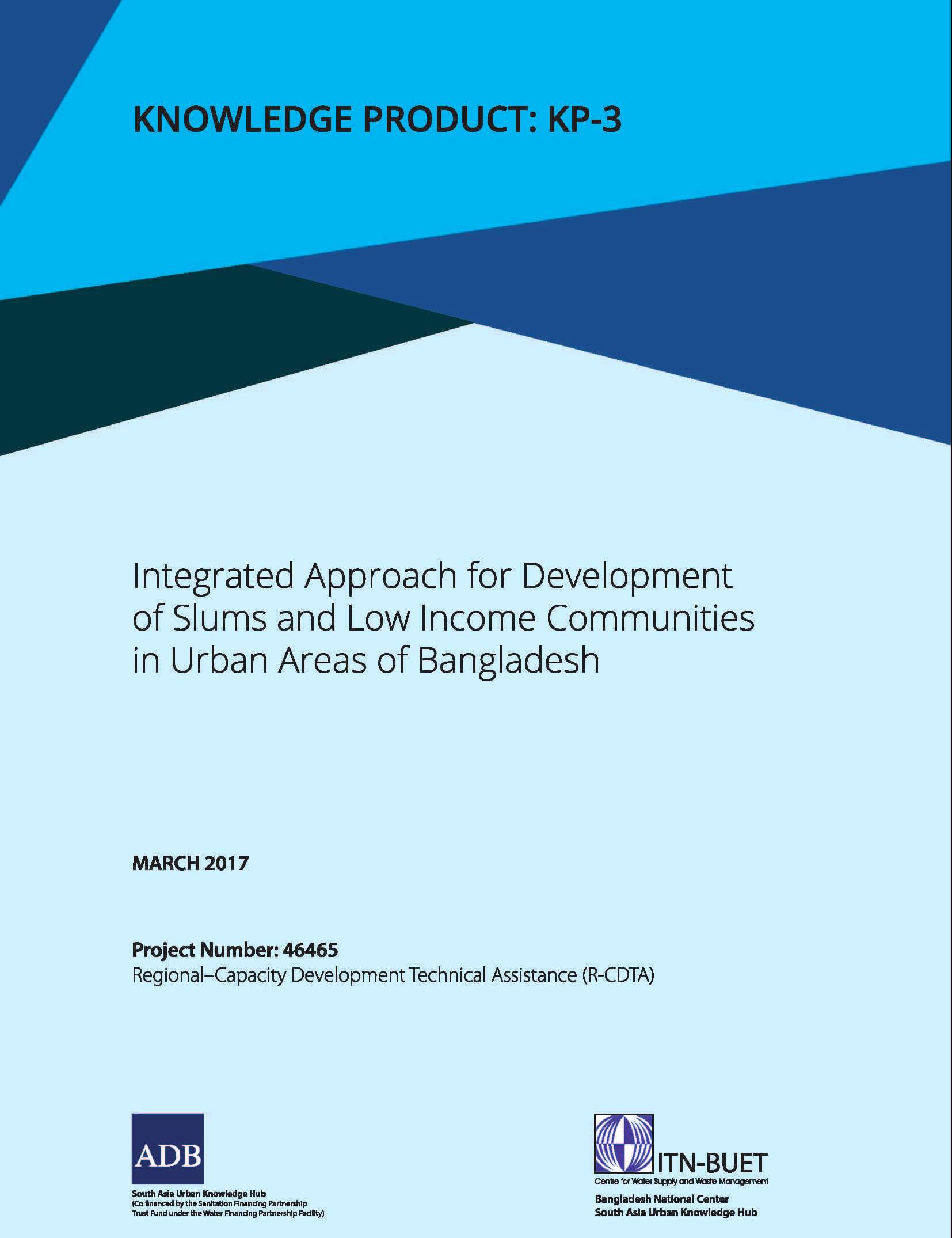Reports
Establishment of a Reference Fecal Sludge Testing Laboratory at BUET
The main goal of setting up a “Reference Fecal Sludge Testing Laboratory” in the country hosting at BUET, having a variety of facilities to carry out various FS tests (including effluent and sludge), and providing its services to the recipients.
Publisher(s): ITN-BUET
2021
FSM Convention Bangladesh 2016: Workshop Proceedings
The Bangladesh Faecal Sludge Management Network (FSMN) is a common and collective platform for the sector actors to generate ideas, share views, influence policy and practice, and raise a collective […]
2021
Assessment of Selected Laboratory Facilities to Operate as FSM Laboratory and Strategizing Development and Capacity Enhancement
This Laboratory Assessment aims to evaluate the capacity of existing laboratories in technical universities (CUET, KUET, RUET, and SUST) …
Publisher(s): ITN-BUET
2021
Report on awareness raising campaign strategy and design of BCC-IEC Material on FSM
ITN-BUET, a center for water supply and waste management of the Bangladesh University of Engineering and Technology has published a term of reference aiming to appoint consultant/s to prepare an awareness-raising campaign …
Publisher(s): ITN-BUET
2020
Assessment Report: Waste Management Practice and Capacity – Paurashava
The report presents the current sanitation, solid waste and faecal waste management conditions of the Paurashavas.
Publisher(s): ITN-BUET
2019
Scheduled emptying services as an entry point for change
There are several possible entry points for improving urban sanitation in a given city. Whichever entry point is chosen, it should take account of both the short-term needs and priorities and of the broader citywide urban sanitation system. Once momentum is triggered, programme prioritisation and planning should be revisited. Scheduled emptying is a particularly valuable starting point as it engages a broad group of stakeholders, can be applied at various scales (pilot to citywide) and builds skills across diverse aspects of urban sanitation: governance, regulation, finance, behaviour change, private sector engagement and treatment.
Publisher(s): SNV Netherlands Development Organisation
2019
Leading FSM Practices in Bangladesh
To overcome these challenges, the municipal authority has started providing FSM services to people in Benapole since April 2018 with the support from SNV Netherlands Development Organization. In this implementation process, the municipality and SNV are playing the following key roles:
Publisher(s): FSM Network
2018
3rd FSM Convention Bangladesh 2018: Proceedings Report
Bangladesh Faecal Sludge Management (FSM) Network organised the 3rd FSM Convention, with the aim to find the way forward in terms of sharing experiences for policy influencing and promoting the business of faecal sludge. Focused on resource mobilisation for ensuring and scaling up sustainable FSM services in Bangladesh, this day-long convention brought together sanitation actors and the other relevant stakeholders to share the learnings from the FSM journey in Bangladesh and suggest initiatives to scale up the momentum.
Publisher(s): FSM Network
2018
Knowledge Product: Integrated Approach for Development of Slums and Low Income Communities in Urban Areas of Bangladesh
An “integrated approach” (Knowledge Product – 3) has been proposed for holistic development of slums and low-income communities (LICs). The approach has been developed based on assessment of existing situation and challenges in slums and LICs, review of slum development approaches/experiences in different countries, and through extensive consultation involving all stakeholders. The “approach” involves identification of issues and challenges in urban slums and LICs under “four broad categories”, and then addressing the “interrelated issues and challenges” under each category systematically in an “integrated manner” involving all stakeholders including the LGI itself, I/NGOs, development partners, and other concerned agencies.
Publisher(s): ITN-BUET
2017


